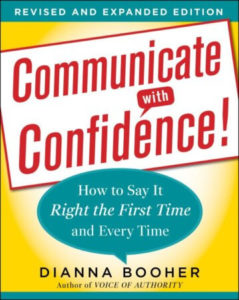


(Forbes first published my article here.)
One positive benefit of the Pandemic that some may have overlooked: Working remotely may have put you out of direct day-to-day contact with a bully. Whether that bully is a boss or a coworker, not having to deal with the anger, snubs, pouts, or direct insults reduces daily stress significantly.
At least, for 54 percent of the workplace, according to a recent study of more than 1,000 Americans, remote work has reduced “the heat” temporarily.
But what about when these remote workers—or you—have to dive back into a job where they are elbow to elbow with that bully boss or coworker? According to the survey of the 79 percent who say they have either experienced or witnessed bullying at work, here’s what happens:
How does this bullying affect your work? Stress, of course. But also deteriorating job performance, inability to concentrate, and inability to make quality decisions.
So if you find yourself bullied or “picked on” by a boss or coworker, here are tactics to stop the situation:
Some people make disparaging remarks (about your dress, your lunch choices, your hobbies) as a test of your ability to “take it.” If you can top the put-down or at least laugh at the put-down hurled at you, you pass the test. Your ability to laugh at your own expense conveys a healthy self-esteem, so others can respect you too.
With the bullies, you lose if you play the part of victim. If others observe that verbal barbs offered in “good-natured” fun ruffle your feathers, they smell blood. They begin to see you as a victim, and victims soon fall prey to others’ attacks. At best, the victim just gets dropped from the game. People ignore victims. If you’re new to the group, identify yourself with the power players rather than with the victims.
Demonstrate that you’re able to laugh at your own foibles.
Look bored. Yawn. Wave the person away with a flip of your hand. Continue your work or make your exit. Break eye contact. Your body should say “I don’t have time for such nonsense. Grow up. Stop it.”
When I was writing Communicate With Confidence, an agent from a credit card company shared this story with me that calmed his own bullying tactics on the phone:
His prospect said to him, “I do not want your credit card. What do I have to do to make that clear—tattoo it on your butt?”
My friend, the card card agent, started to laugh.
The prospect yelled, “What’s so funny?”
“Sir, if you only knew how big my butt is . . . it’d take you all day.”
The prospect started to laugh with him.
Various studies show that those who are credible and competent actually increase their connection with others when they use self-deprecating comments. If you have a strong ego and are generally competent in your job, laugh at yourself and invite others to join you.
Some people lack the social graces to separate appropriate topics from the inappropriate, invasive topics. Others just like the challenge of seeing people squirm when they ask an insulting or highly personal question.
Select your response based on what you perceive the other person’s intentions to be—from silence and a mere shrug to a more direct response:
—“So why would you ask me that?”
—“And why do you need that information?”
Or, you can use humor:
—“Are you writing a book? If so, then leave that chapter out!” (My all-time favorite used by a long-time friend of mine when he didn’t want to answer me about something.)
—“I’ll forgive you for asking—if you’ll forgive me for not answering.”
—“We have a long history of forgetfulness in our family, Jason.”
—“Okay, who has the camera? This is going on YouTube, right?”
Yes, you can borrow this idea from customer-service hassles. When hotel employees are discourteous or make poor judgment calls, you can always ask their name. They’ll know you intend to write a letter to their supervisor.
You can use the idea with a bullying coworker. When they make a belittling remark, make a point of writing down that remark in their presence—even asking them to repeat the comment so that you can “record it accurately.” If they ask why, make some flippant comment like: “A new chapter in my book. Or no. I’m sending it off for a contest.”
The person will immediately begin to see visions of HR people swarming around his or her workspace. People think hard before “going on record” with insults and harassment in the future.
Some people bury their barbs in double meanings, sarcasm, teasing. When you recognize an intent to hurt, identify it and surface it. Examples: “Roz, although you laughed when you said X, I sense an underlying message. Do you think my work is off target? Do you have real objections?”
If you ask such a direct question, be prepared for a denial. Never mind. That’s not the point. Your purpose is to call the other person’s hand on the “teasing” or sarcasm. Such comments force the hostility and/or work problem into the open so you can deal with it.
Don’t get me wrong. The above tactics are not meant to suggest that you should remain silent and endure aggressive bullying. The above survey suggests half of those who experience bullying and insults from coworkers do choose to suffer in silence—or leave their job.
But remember that you do have choices. Respond in the above acceptable ways. And if the bullying continues, speak up. Report it to the appropriate authority to get help in stopping the stress.
Learn more about how to respond to insults or resolve conflicts with Communicate With Confidence!: How to Say It Right the First Time and Every Time.
